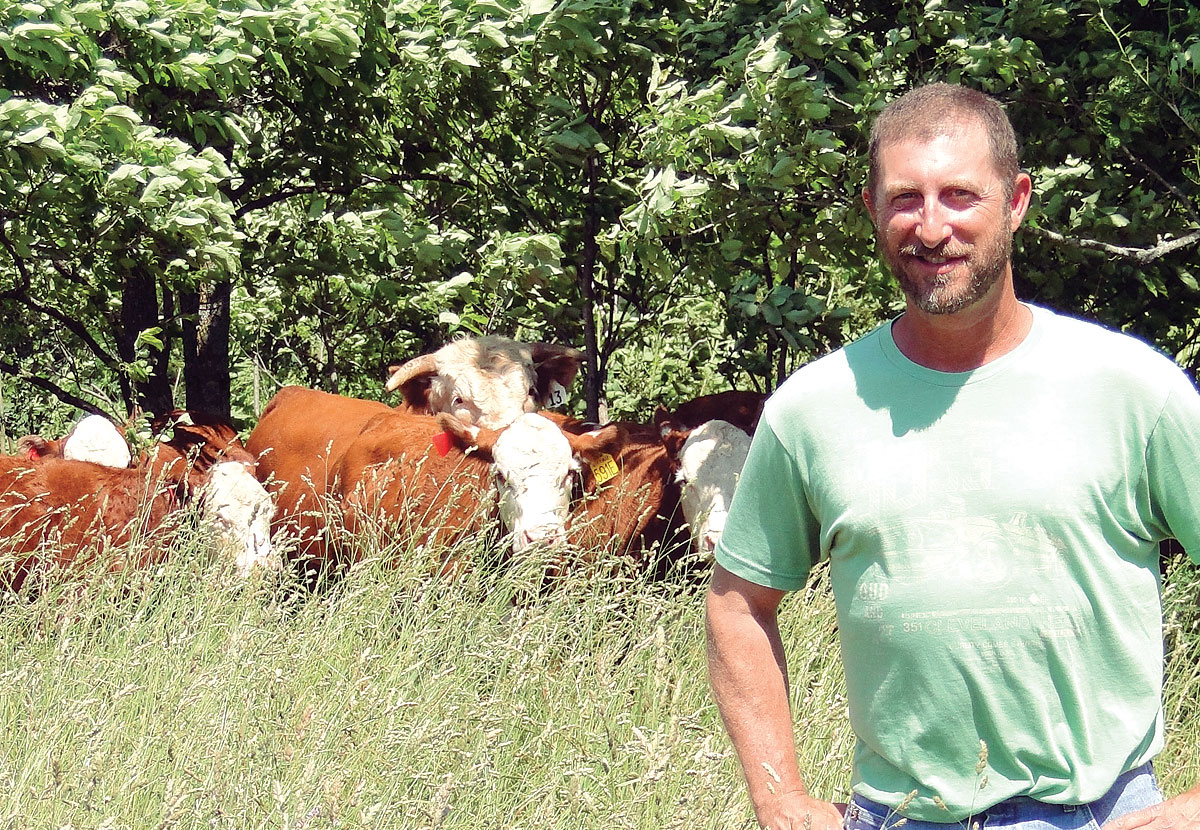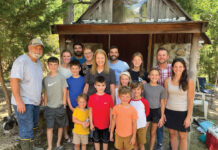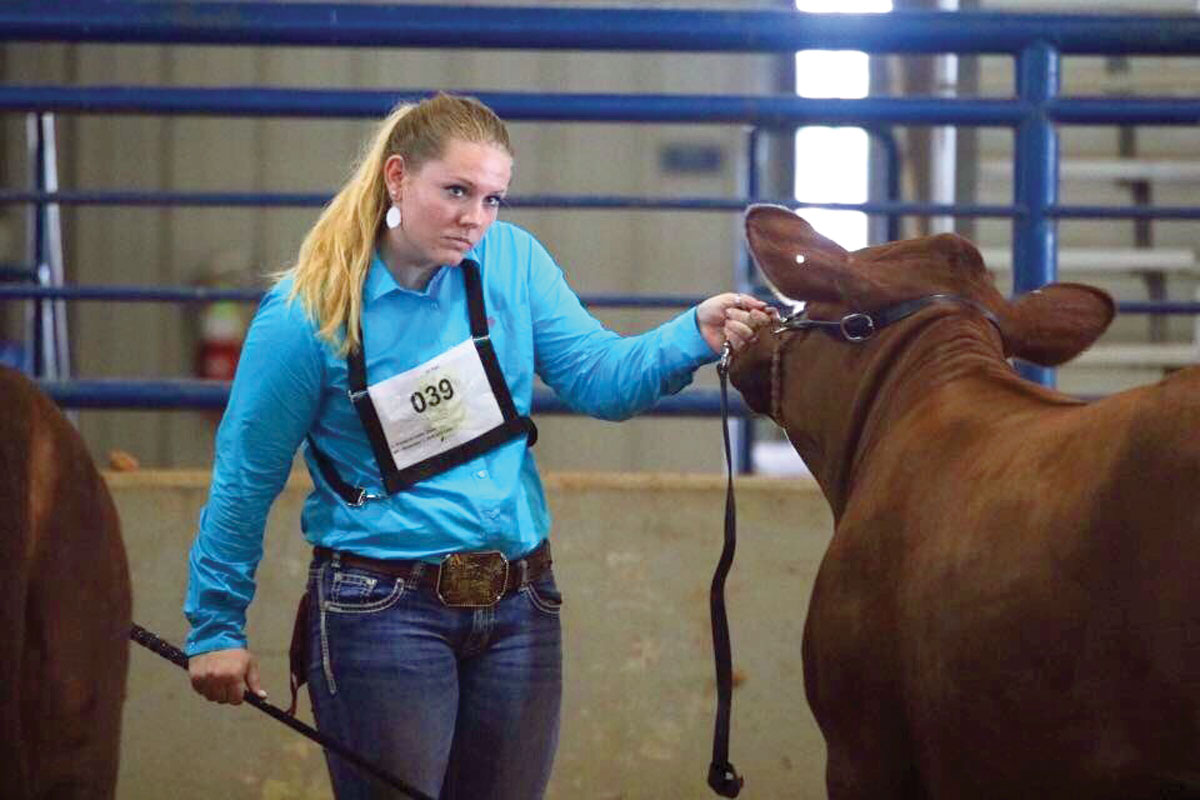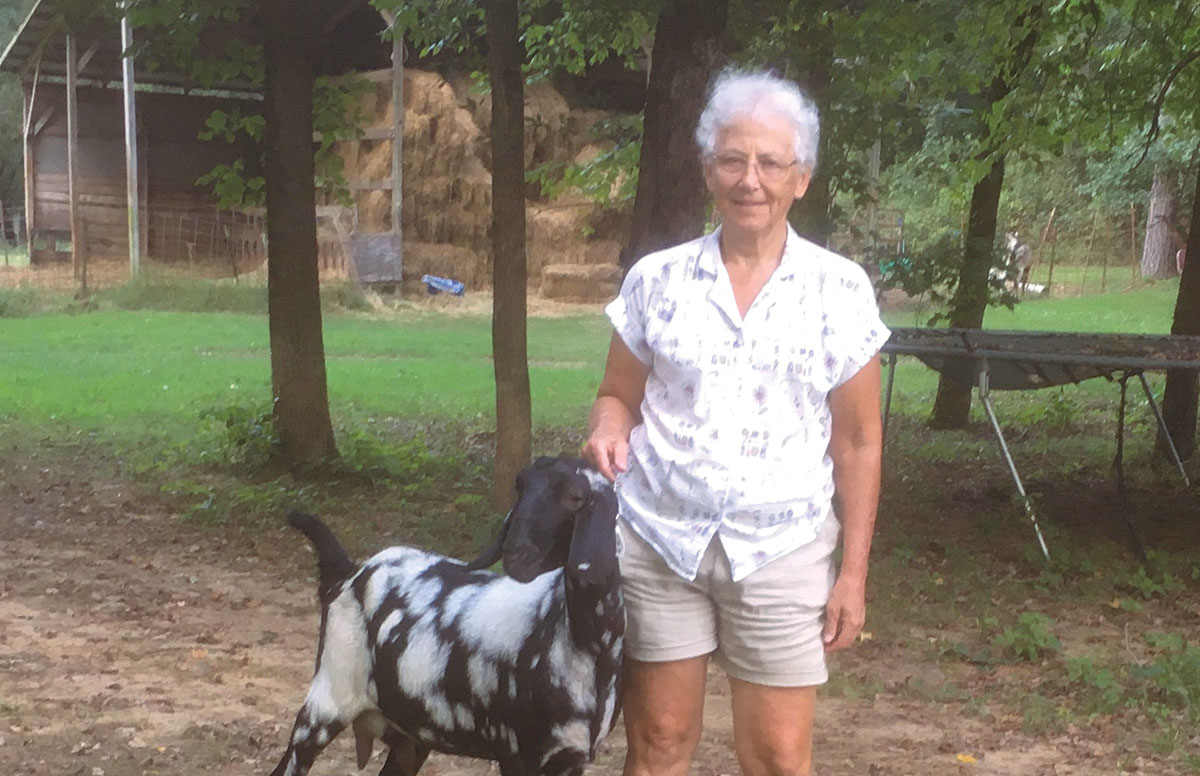
Hereford breeder Sheldon Vinson rotates his sires annually and buys a set of heifers each year
Sheldon Vinson runs a unique Hereford breeding operation because he lives in Fayetteville, Ark., and his farm is in Winslow, Ark.
Because his farm is 30 miles away and he sells cars with his father-in-law Robert Parker at Parker Motor Company in Fayetteville, Ark., he typically goes to the farm only three times per week. This means a creative operation that is streamlined and highly efficient. The purpose of the operation is to earn enough money to pay for private education for his children while still feeding his lifelong passion for cattle.
“My biggest challenges are driving the 60 mile round trip from Fayetteville to Winslow and back, and keeping all the fencing repaired,” Sheldon said.
Sheldon’s father Ron sold dairy equipment in Missouri and then in Arkansas because of a slightly better market at the time. However, Sheldon’s love of cattle came from his grandparents Darrell and Charlotte Vinson who lived north of Cassville, Mo., where they raised cattle, hogs and fescue seed. After the family move to Arkansas, Sheldon returned during summers to his grandparents’ place where he fondly remembers eating grandma Charlotte’s salmon patties until he thought he couldn’t move. His grandfather Darrell, however, thought differently and taught his grandson how to work and that a day off was a waste of time. While Sheldon’s earliest memory is walking grandpa’s gentle bulls from pasture to pasture, more vivid memories concern lessons learned. Once when Sheldon was 7, he was driving a pickup and throwing feed out the back. Sheldon inadvertently threw him off and quickly learned to do exactly what he was told, no more and no less. Another time Darrell needed to catch a reluctant calf who was having no part of being roped by Darrell, who was on foot. Darrell jumped into the truck along with a young Sheldon and Sheldon’s great-grandfather T.C. Hammon. While driving, Darrell pulled up alongside the calf, jumped out and tackled the calf. Startled, Sheldon had to move really quickly to take over the truck. Calf caught, everybody safe and Sheldon amazed.
Sheldon lives outside of Fayetteville on 20 acres and leases 100 between Winslow and Elkins, Ark. He keeps five cows at the house and buys a set of heifers that are as uniform as possible each year for the Winslow area pastures. The heifers are “golden certified,” which means both the dam and sire are registered, though the heifer is technically commercial. The heifers are polled Herefords and are bred to a horned Hereford bull.
According to Sheldon, the combination provides better meat traits from the mommas and better milk traits from the sires. The heifers are then bred to two bulls with EPDs indicating calving ease purchased annually from TS Herefords in Kansas.
“I like what they have to offer, and I haven’t had to pull a calf in three years,” Sheldon said.
The reason for changing bulls every year is that Sheldon wants a younger and therefore smaller bull to protect the heifers during breeding. He sells the TS breeding bulls annually for approximately what he pays for them, therefore keeping them no longer than necessary as he moves toward his goal of a totally spring breeding season.
One of his bulls last year successfully bred 28 heifers in 27 days.
“He was a very busy boy,” Sheldon said with a laugh.
Sheldon sells bred heifers, generally by the group. Calves from the five cows in Fayetteville are weaned at 6 months with bull calves being sent to Missouri to mature until ready to sell while the heifers retained as part of that year’s bred heifer production. Sheldon sells his cattle online, and most go to Texas where the versatile Herefords are used to produce black baldies and F1 crosses.
Sheldon’s pastures are a combination of fescue, Bermuda and clover. A nearby turkey rancher provides litter and spreads it while someone else hays his land on shares. He also hires someone to broadcast spray though he digs out his own thistles. The result is minimal equipment and no equipment payments. Sheldon also uses a hired, portable corral system when he works his herd. An important part of his health protocol is giving shots for pinkeye since Herfords tend to be susceptible to the virus. Even though Sheldon’s overhead may be higher than average, he typically profits $500 on each animal he sells.
“An important part of raising cattle is to be prepared for a loss and to have enough capital on hand to handle a loss. While the registered Hereford market is more stable than most, anything can happen,” Sheldon said.
In order to expand his operation, everything has to fall into place. The Vinson life in Fayetteville is pretty well established. Sheldon’s wife Amy has been a data analyst for 20 years, and they have two children: Wyatt who is 10 and Ally who is 4.
In order to increase operation size land must be very close to Sheldon’s current herd as well as affordable. Nonetheless, Sheldon wants his children to be familiar with agricultural life. Young Wyatt loves to work alongside his father with the cattle and both children may someday show.






